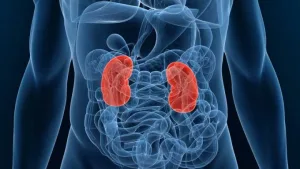WHO Adds Weight-Loss Drugs to Essential Medicines List, Marking Global Health Shift
A Landmark Decision in Global Health Policy The World Health Organization (WHO) has officially added two groundbreaking weight-loss and diabetes medications to its essential medicines list. This move acknowledges the growing global burden of obesity and diabetes—conditions that now affect over a billion people worldwide—and signals a major shift in how chronic diseases are prioritized in public health.
The Drugs Making Headlines The newly listed drugs belong to the GLP-1 class and include semaglutide, found in Ozempic and Wegovy, and tirzepatide, found in Mounjaro. These medications have gained global attention for their dual ability to manage diabetes and promote significant weight loss by suppressing appetite and improving metabolic health.
Obesity and Diabetes: A Mounting Crisis In 2021 alone, more than 3.7 million deaths were linked to obesity-related illnesses—surpassing fatalities from malaria, tuberculosis, and HIV combined. With one in eight people now classified as obese and over 800 million living with diabetes, the urgency for accessible and effective treatments has never been greater.
Affordability Remains a Barrier Despite their effectiveness, these drugs remain prohibitively expensive in many countries. In the United States, monthly costs can exceed $1,000, making them inaccessible for most patients in low- and middle-income nations. WHO’s inclusion of these drugs on the essential medicines list is a call to action for more affordable options.
The Push for Generics WHO is advocating for generic production to make these treatments widely available. Research indicates that semaglutide could be manufactured in India for as little as $4 per month. With patents set to expire in countries like India, Canada, and China next year, a wave of generic alternatives could soon enter the market—dramatically improving access.
Beyond Weight Loss: Expanding Health Benefits Originally developed to treat diabetes, GLP-1 drugs are now being studied for broader applications. Recent studies suggest they may reduce the risk of heart disease and even help address addiction. One major study found that patients using GLP-1 drugs had over 40% lower chances of hospitalization or premature death due to heart conditions.
A Turning Point for Chronic Disease Management By adding these drugs to its essential medicines list, WHO is not only promoting access but also redefining global health priorities. The focus is shifting from infectious diseases to chronic and lifestyle-related conditions that increasingly threaten lives across the globe.
Conclusion: A New Chapter in Global Health Equity WHO’s decision marks a pivotal moment in the fight against obesity and diabetes. With the potential for affordable generics and expanded access, millions of lives could be transformed. The move calls for collaboration among governments, pharmaceutical companies, and health organizations to ensure these life-saving treatments reach those who need them most.




+ There are no comments
Add yours